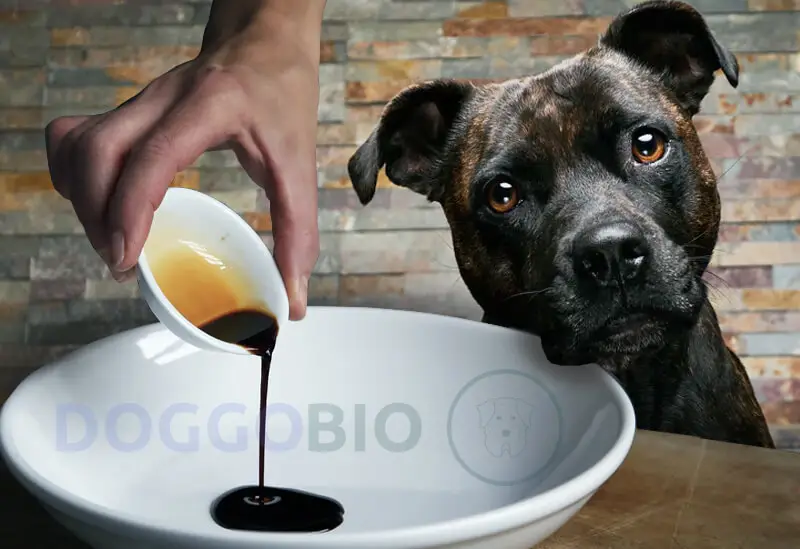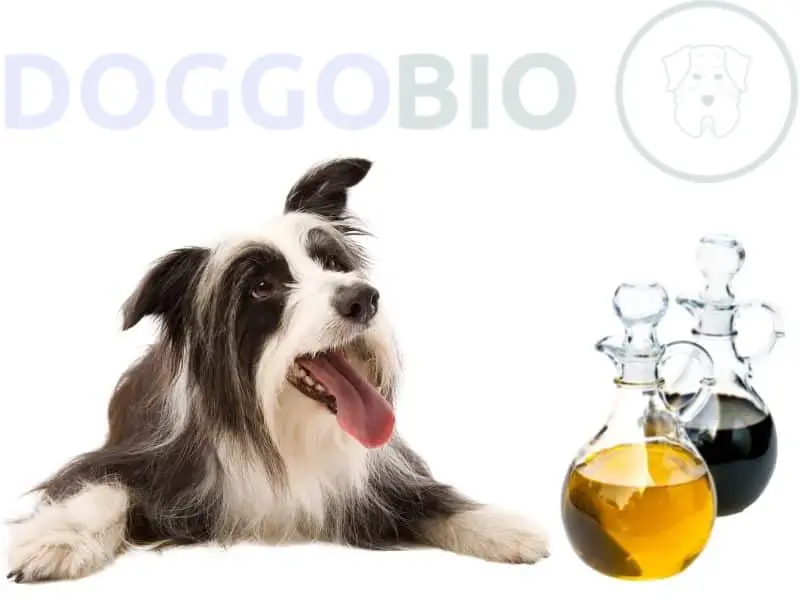As pet owners, we’re always cautious about what foods we can safely share with our furry friends. One common question is, “Can Dogs Eat Balsamic Vinegar?”. This tangy, slightly sweet condiment is a staple in many kitchens, used in everything from salad dressings to marinades. But when it comes to our canine companions, is balsamic vinegar a safe choice? The short answer is yes but with some important caveats. While balsamic vinegar is not toxic to dogs, it should not be a regular part of their diet.
In this article, we’ll explore why balsamic vinegar can be a harmless treat in small amounts and why it’s best to use it sparingly when feeding your dog. We’ll explore the nutritional aspects of balsamic vinegar, its potential health benefits and risks for dogs, and provide guidelines for pet owners who might consider offering this condiment to their pets. Let’s unravel the mystery of dogs and balsamic vinegar together!
Can Dogs Eat Balsamic Vinegar?

In short no, dogs should not eat balsamic vinegar. While it may not be toxic to them, it is not recommended as part of their diet.
Nutritional Value Of Balsamic Vinegar
Balsamic vinegar is low in calories and contains no fat or cholesterol. It also has some nutritional benefits, such as being a good source of antioxidants and having anti-inflammatory properties.
However, it is essential to note that these benefits are more applicable to humans and may not necessarily apply to dogs.
Potential Risks of Balsamic Vinegar for Dogs
While balsamic vinegar may have some health benefits for humans, it is not recommended for dogs. Here are some potential risks associated with giving balsamic vinegar to your canine companion:

- Acidity: Balsamic vinegar is highly acidic, with a pH level of 2.5-3.5. This can cause stomach upset and irritation in dogs, especially if they have a sensitive stomach or are prone to digestive issues.
- Sugar content: Balsamic vinegar contains a significant amount of sugar, which can harm dogs. Consuming too much sugar can lead to weight gain, dental problems, and even diabetes in dogs.
- Sodium: Some commercial balsamic vinegar brands may contain added salt, which can be dangerous for dogs. Excessive sodium intake can lead to dehydration, high blood pressure, and other health issues.
- Allergic reactions: Dogs can be allergic to certain ingredients in balsamic vinegar, such as grapes or sulfites. If your dog has any food allergies, it’s best to avoid using balsamic vinegar.
Alternatives To Balsamic Vinegar For Dogs
If you’re looking to add some flavor to your dog’s food, here are some safe alternatives to balsamic vinegar:

- Broth: Low-sodium chicken or beef broth can be a great way to add flavor to your dog’s food without the risks associated with balsamic vinegar.
- Fruits and vegetables: Some fruits and vegetables, such as apples, blueberries, and carrots, can be a healthy and tasty addition to your dog’s diet. Just make sure to introduce new foods gradually and in moderation.
- Commercial dog-friendly condiments: Many dog-friendly condiments specifically made for dogs are now available. These can be a safe and tasty alternative to balsamic vinegar.
Frequently Asked Questions
Can Dogs Eat Traditional Balsamic inegar?
No, dogs should not consume balsamic vinegar, including traditional balsamic vinegar. While it may be made from only grape must, it is still highly acidic and contains sugar, which can harm dogs.
How Much Balsamic Vinegar Is Safe For Dogs?
It is best to avoid giving your dog any amount of balsamic vinegar. Even a tiny amount can cause stomach upset and other health issues in dogs.
What Should I Do If My Dog Accidentally Consumes Balsamic Vinegar?
If your dog accidentally consumes balsamic vinegar, monitor them for any signs of discomfort or illness. Contact your veterinarian immediately if they show symptoms like vomiting, diarrhea, or lethargy.
Conclusion
In conclusion, when it comes to the question, “Can Dogs Eat Balsamic Vinegar?” the key takeaway is moderation and caution. While balsamic vinegar isn’t inherently harmful to dogs, its acidic nature and the presence of additives in some varieties can be problematic if consumed in large quantities.
It’s always best to consult your veterinarian before introducing new food items into your dog’s diet. Remember, each dog is unique, and what might be harmless for one might not be suitable for another.
As a responsible pet owner, prioritizing your dog’s health and dietary needs is essential, and when in doubt, it’s better to err on the side of caution.
